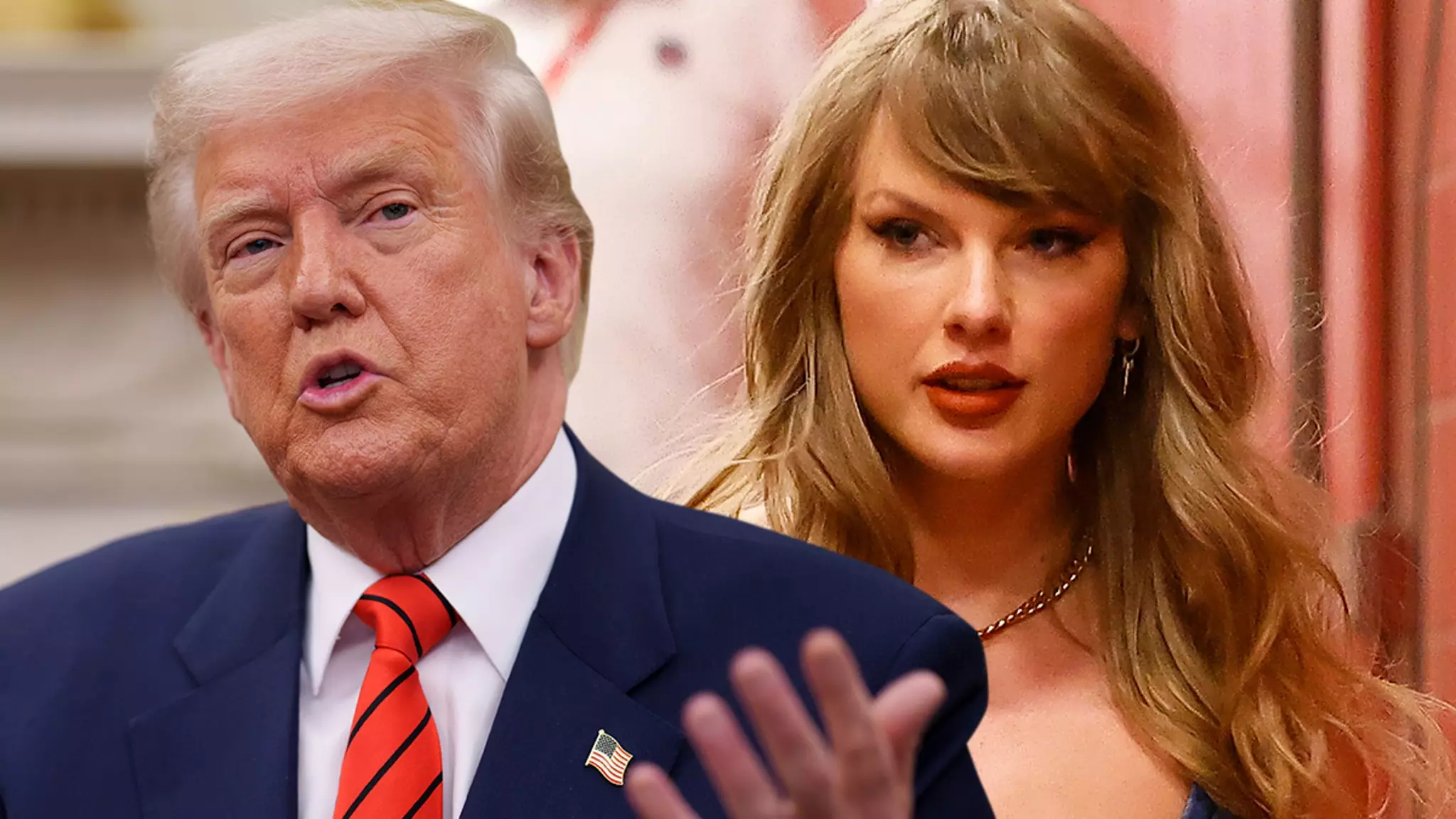In the ever-converging worlds of celebrity and politics, few narratives capture public attention quite like that of Donald Trump and Taylor Swift. The former President’s penchant for using social media to voice controversial opinions often leads to shocking revelations. Most recently, his claim that Swift’s attractiveness reportedly diminished in his view following her political endorsement signals not only a personal vendetta, but a concerning commentary on how public figures wield influence over perceptions of beauty in society.
From Admiration to Dismissal
Trump’s abrupt transition from praising Taylor Swift to vehemently criticizing her is puzzling yet telling. During a biographical interview, he had lauded her as “unusually beautiful” and praised her talents. Fast forward, and he utilizes his platform to declare “I HATE TAYLOR SWIFT” after she publicly endorsed Kamala Harris, thereby indicating a drastic pivot not just in opinion but also in the underlying value system that defines beauty. This makes us question: Does the admiration of public figures hinge on their political affiliations?
Trump’s declarations exemplify the often fickle nature of opinions formed in the public eye; it reflects a sort of transactional view of beauty that can be so easily revoked, based solely on personal grievances. It leaves us grappling with the broader implications: if attractiveness can wane in the face of political opposition, what does that say about our societal standards?
Fan Culture and Political Messaging
Swifties, the colorful and committed fandom surrounding Taylor Swift, have voiced their displeasure with Trump’s latest comments. This raises an important question about the intersection of fan culture and political discourse. Fans of celebrities like Swift often see their idols as paragons of creativity and personal expression. When political stance clashes with artistic talent, the fallout can become quite intense. It highlights how deeply intertwined our perceptions of celebrities are with their social and political actions, which can spark a backlash from devoted fans.
Trump’s comments do not merely reflect a dislike for Swift; they also signify a broader tendency where he attempts to cut down those who challenge him. He has a history of undermining individuals who publicly oppose his views, suggesting that his opinion on beauty is less about aesthetics and more about allegiance — a troubling notion in a society that often glorifies individual expression and autonomy.
Transitory Concepts of Beauty
The reality that beauty is subjective becomes obscured in Trump’s binary categorization of attractiveness. It exposes a dangerous narrative that beauty is linked to approval, especially from those in power. Swift’s transition from being celebrated to disparaged showcases how easily public personas can be torn apart by vocal dissent. This deeply flawed perception of beauty rooted in approval has ramifications beyond celebrity gossip; it encapsulates how political leanings can skew personal views, diminishing the value of nuanced thought in a complex world.
In an increasingly polarized society where public figures can dictate the criteria of desirability, we are left wondering what it means to be beautiful. Can it stand independently of political preference? Is the admiration for talent washed away by differing opinions? As Trump navigates his opinions on Swift, it reveals the spectacle of how public evaluations unfold, leaving beauty a mere reflection of one’s political alliances rather than an inherent trait.

